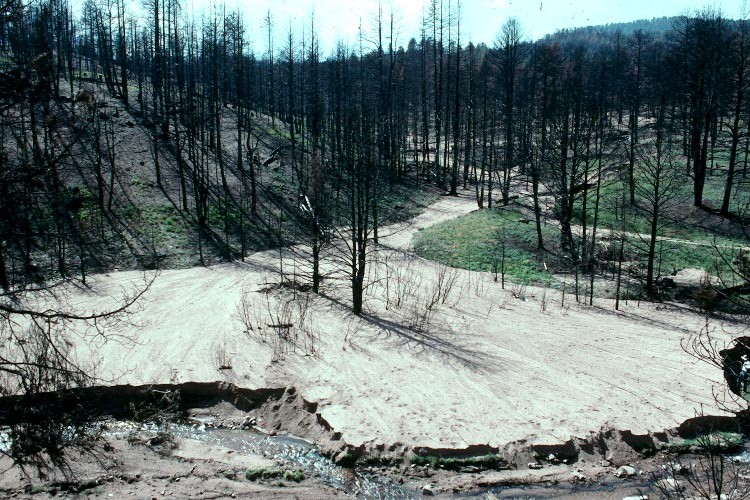
Americans are all too familiar with the devastation catastrophic wildland fires can wreak on the landscape. Fire takes lives, destroys homes, impacts wildlife, and devastates millions of acres of valuable forests and grasslands every year. But what is lesser known is that these fires also severely damage watersheds—the very lands that provide clean and abundant drinking water for millions of Americans every day.
To address this problem, Agriculture Secretary Tom Vilsack and Interior Secretary Sally Jewell this week announced an historic agreement between the Department of Agriculture's Forest Service and the Department of the Interior’s Bureau of Reclamation to focus on proactively restoring forest lands around important watersheds and preventing costly, destructive wildfires in these areas.
The partnership is included in President Obama’s Climate Action Plan as a means to reduce wildfire risk, protect critical infrastructure, and lessen the impacts of climate change, which include higher risks of large and destructive wildfires. The damage caused to rivers, dams, and irrigation systems after a wildfire can be tremendous. Clearing out the sediment and ash left behind is costing the nation millions of dollars every year, and the impacts of climate change are expected to continue to intensify. Climate change also exacerbates dry conditions, which can slow the natural recovery time after a wildfire.
Through this Western Watershed Enhancement Partnership, our two federal agencies will begin working with water users on both the local government and private sector level to restore healthy forested watersheds across the West. In cooperation with regional Colorado government agencies, our first effort in this partnership will start in the Upper Colorado Headwaters and Big Thompson watersheds. Our goal is to ensure these important watersheds are kept reliable and clean for the hundreds of thousands of people who depend on them for drinking water, farming and electricity.
On a national level, our partnership will work to restore forest and watershed health and conduct planning for post-wildfire actions and responses. We will strive to protect municipal and agricultural water supplies and water delivery systems from future threats and we invite cities, towns, and rural communities to partner with us.
As land managing agencies, we share an interest in the long-term sustainability of our Nation’s water supplies. These waters are the life blood for American agriculture, the source of drinking water for millions of Americans, and a key component of healthy local economies. By working cooperatively across agency lines, we can keep our forested and grassland watersheds safe for the millions of Americans and wildlife that depend on these clean and abundant water sources.
Tom Tidwell is the Chief of the U.S. Forest Service.
Mike Connor is the Commissioner of the Bureau of Reclamation.


